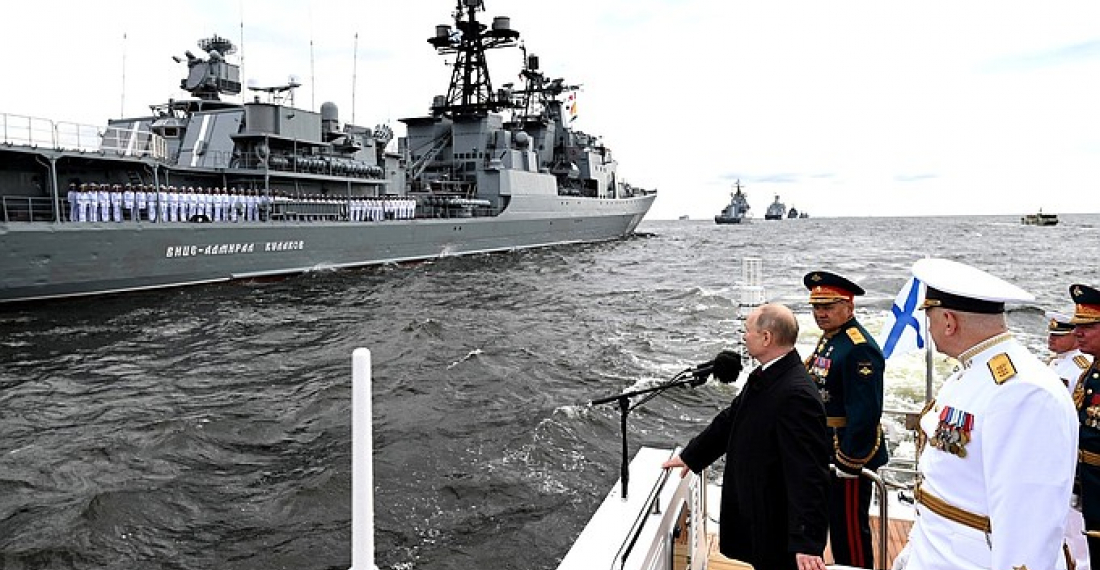President Vladimir Putin reviewed the Russian Navy on Sunday (25 July) at the annual naval parade which this year was held in St Petersburg.
The naval parade marked the 325th anniversary of the Russian Navy.
Over 50 ships, boats, and submarines participated, and the aerial part of the parade included more than 40 aircraft and helicopters.
Speaking on the occasion, president Putin stressed that today the Russian Navy has everything it needs to guarantee the protection of its native country and national interests.
“We are capable of detecting any enemy - underwater, surface or air - and inflict an inevitable blow on him, if necessary,” the Russian leader said.
Putin stressed that Russia's naval presence is ensured in almost all areas of the world ocean. He noted that the watch in the northern and southern latitudes is carried out by "faithful heirs of the Fatherland's maritime military glory." According to him, service in the navy is the most honorable and demanded, and skilful sailors and competent commanders who serve in our fleets – in the Baltic, Northern, Pacific, Black Sea, Caspian Flotilla – are known to everyone. "I am sure that thanks to the professionalism, resilience of naval sailors and naval pilots, marines and coastal units, their loyalty to the Fatherland and the Russian fleet, the glory of St. Andrew's banner will never fade," Putin said.







